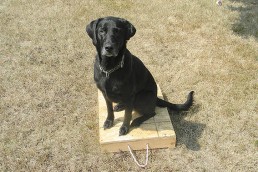Little Things make a Big Difference in Maintaining Outdoor Gear
SHARE THIS POST
Muzzleloading firearms may be one of the most neglected and abused items in the four-season outdoorsman’s collection of gear. I don’t mean scratches and dings, rather rust and corrosion. Muzzleloaders that are stainless or blued, inline or traditional, require a certain amount of maintenance if they’re going to be expected to perform year after year.
Currently, I own three black powder long guns. And since I always want them to be ready when I need them, I give each a thorough cleaning following each shooting session. Of course, this includes turning out the nipple, cleaning the barrel, drying it and adding Bore Butter and coating the surface with gun oil. But I also take it a step further by using Q-tips to clean and oil every little nook and cranny of the lock, hammer and the area around the nipple.
I never stand a long gun on its butt in the corner of the closet. Each is hung horizontally on a gun rack attached to the wall. The reasons are the gun might be bumped, slid forward and scratched or the sights could be bumped off-center in the fall. Secondly, the Bore Butter in the barrel will flow downward, collect in a sump in the breech and create problems. This is the area where you place your dry powder. I believe that most dry fires and hang fires are caused by this very problem.
One of my goals in maintenance is to take down my long guns every month, or perhaps two, give each a thorough inspection and cleaning, recoat the barrel with Bore Butter, and then apply a light coating of gun oil on all metal surfaces. Several white- tailed deer have fallen to my black powder guns and I plan to use them for as many years as I have left to hunt. Then, I’ll pass them on to my grandsons.
Are you enjoying this post?
You can be among the first to get the latest info on where to go, what to use and how to use it!
Since you’re in a cleaning and maintenance “mode,” this would be a handy time to look at another item you need this fall. During the field-dressing process with game animals and birds, it’s common to have hair, feathers, hide and small gobs of blood accumulate in the hinge area of a knife only to be forgotten when the blade is closed. It can remain there, causing corrosion and creating a real problem. The solution? When you get your knife out to give it its preseason sharpening, take a very fine piece of stiff stainless-steel wire and use it as a pick to remove any leftover residue. Follow this with a few drops of fine gun oil in the hinge area and you should be back in business.
One of the best tips to pass along has to do with closing a knife when you have completed your tasks: never snap it shut. This makes me cringe when I see it happen. Knives are valuable tools and some reach the status of being treasured keepsakes. Snapping the blade shut is bad for the hinges, and I can think of few things that are harder on a finely honed blade than to have it slammed against a hard piece of metal. This is exactly what happens when a blade is snapped shut. Grasp the back of the blade between your thumb and forefinger, hold the knife carefully in your other hand, and then slowly push it shut. Believe me, this will keep a blade sharper for a much longer time.
Keep that little piece of stainless-steel wire, for you are going to need it again. Often, hunters will carry bird and game calls in their coat pockets, thus making them likely candidates for accumulation of lint, weed seed, dirt, tobacco crumbs and many other types of debris. If your favorite mallard call sounds like the bark of a fox squirrel, it’s time to take action. Take your calls apart, inspect the reeds to see if they need to be replaced, use that piece of wire to pick out any chaff or dirt, reassemble them, give them a few toots and, if they sound good, once again, you’re back in business.
So, when the television gets boring this summer and you need something to do with your hands other than mowing the lawn, consider doing some of these little things that will make your hunting seasons less frustrating. I’ll bet, though, that you can think of a few more.
MWO
SHARE THIS POST
Did you enjoy this post?
You can be among the first to get the latest info on where to go, what to use and how to use it!
John Bennett
John Bennett is a retired history teacher, historical re-enactor, father and grandfather. As a four-season outdoorsman, his passion is waterfowl hunting and fishing for smallmouth bass. He lives in Ohio and spends quite a bit of time in his primitive log cabin, which he built.



